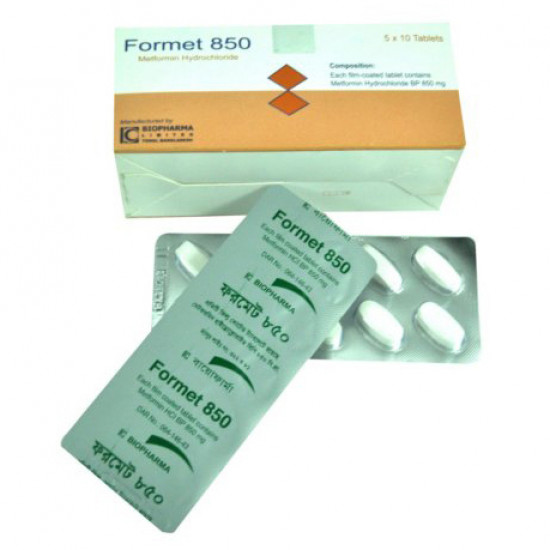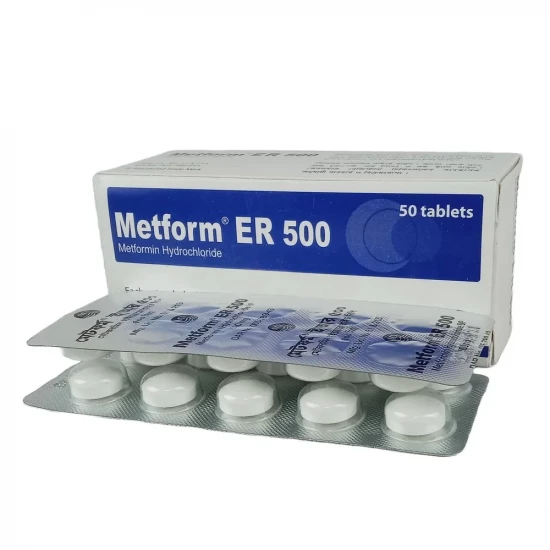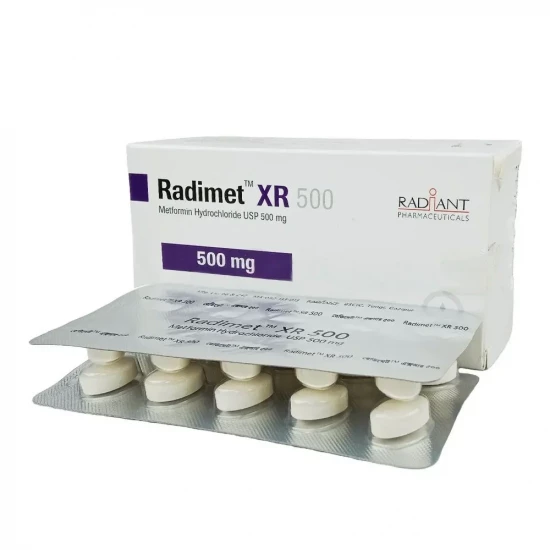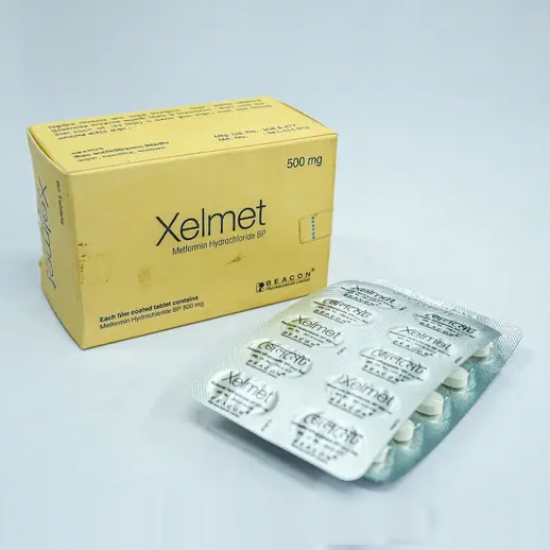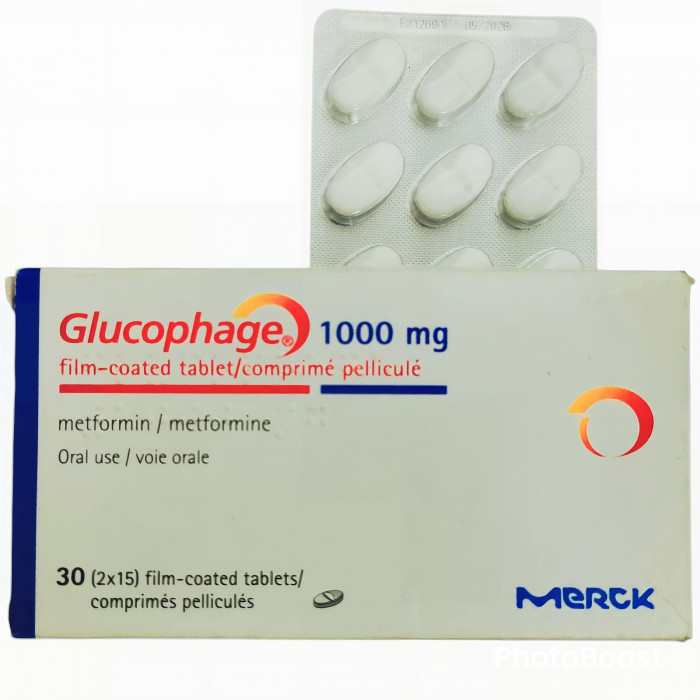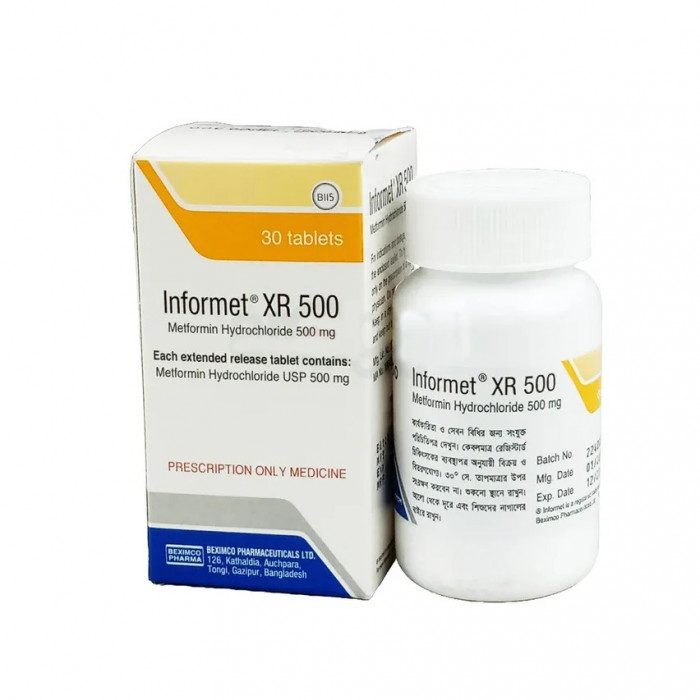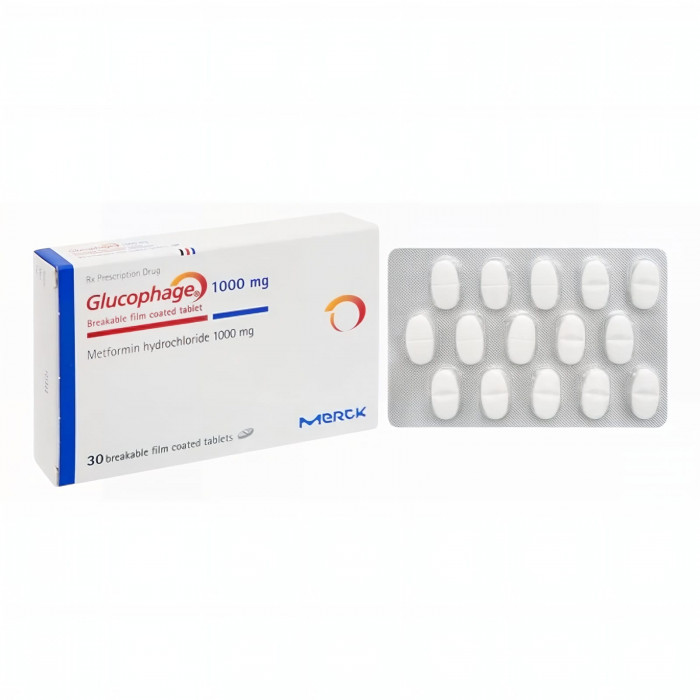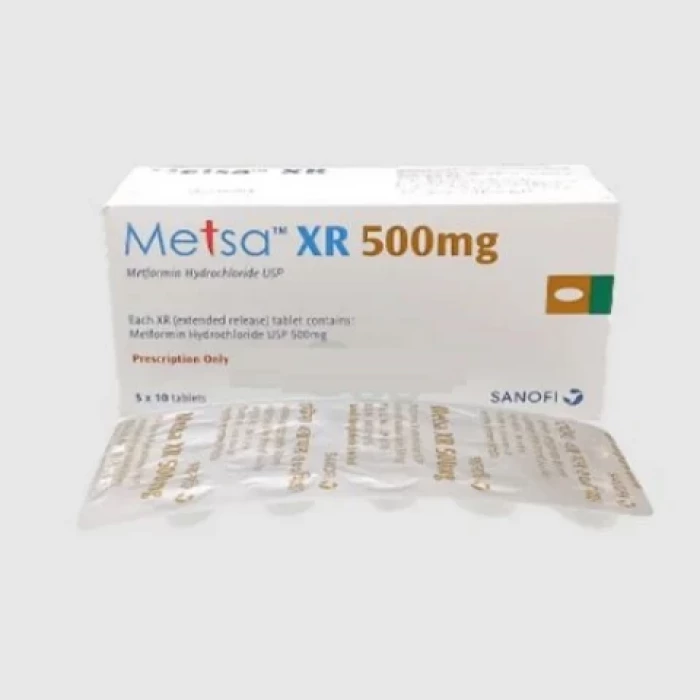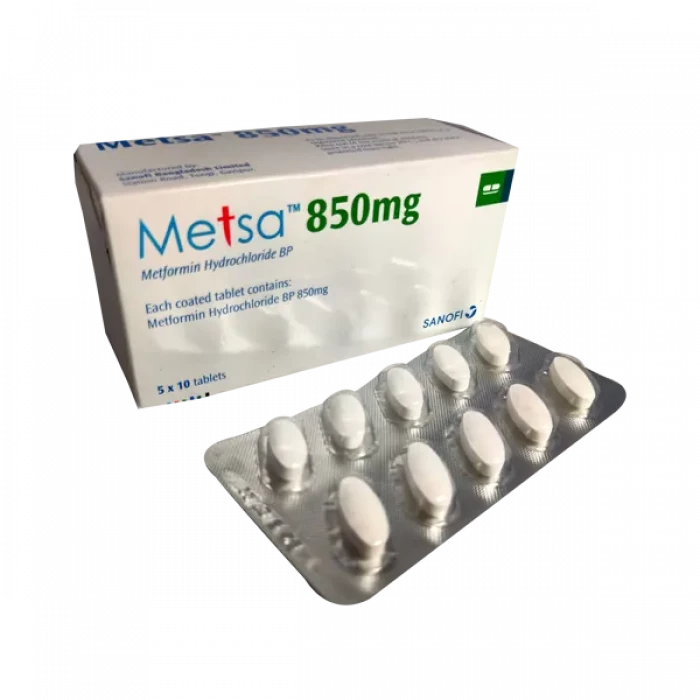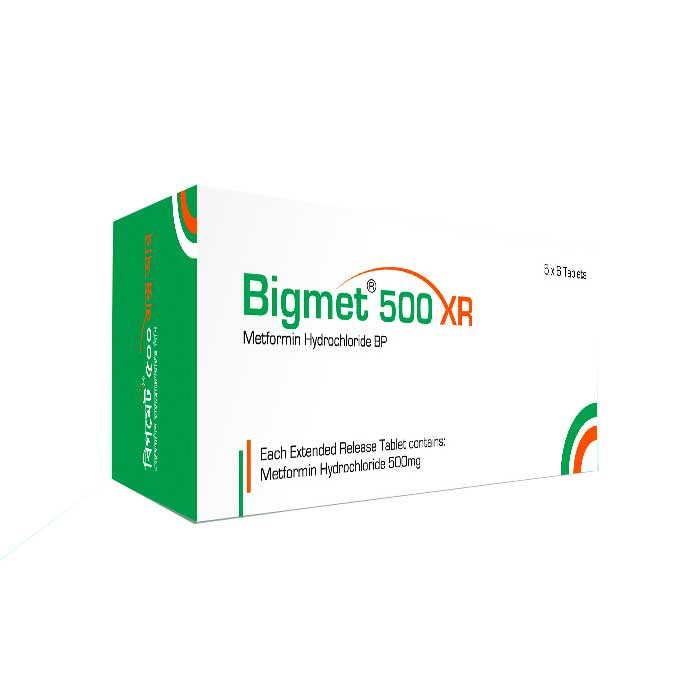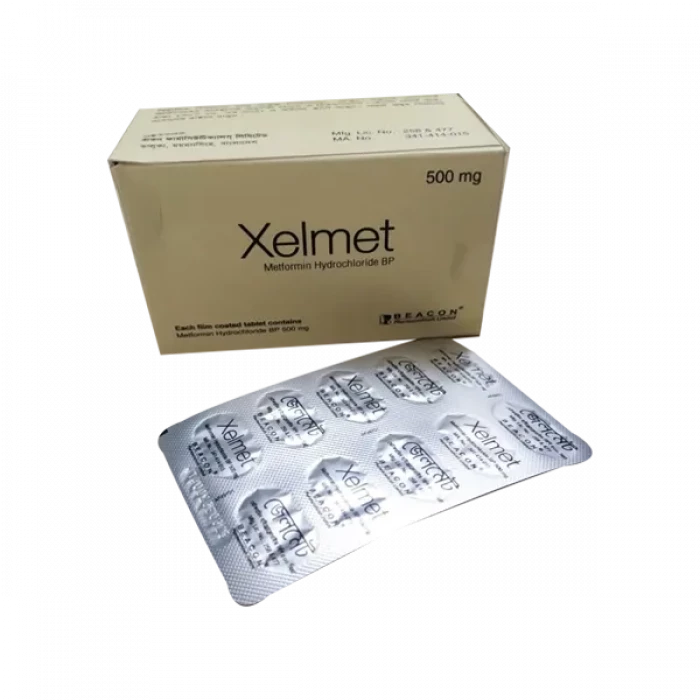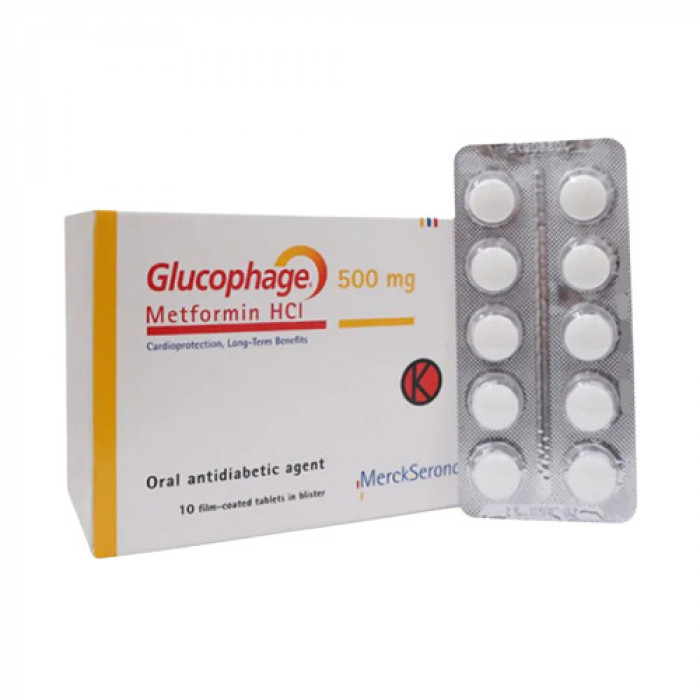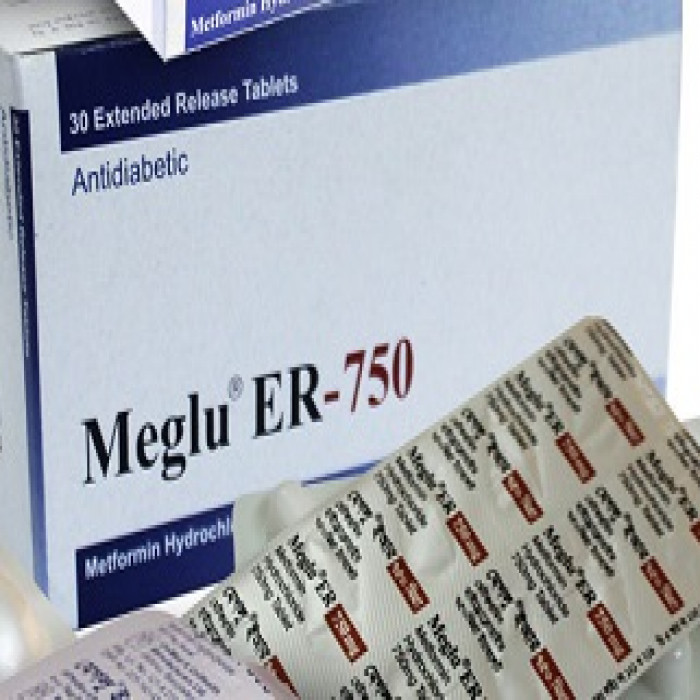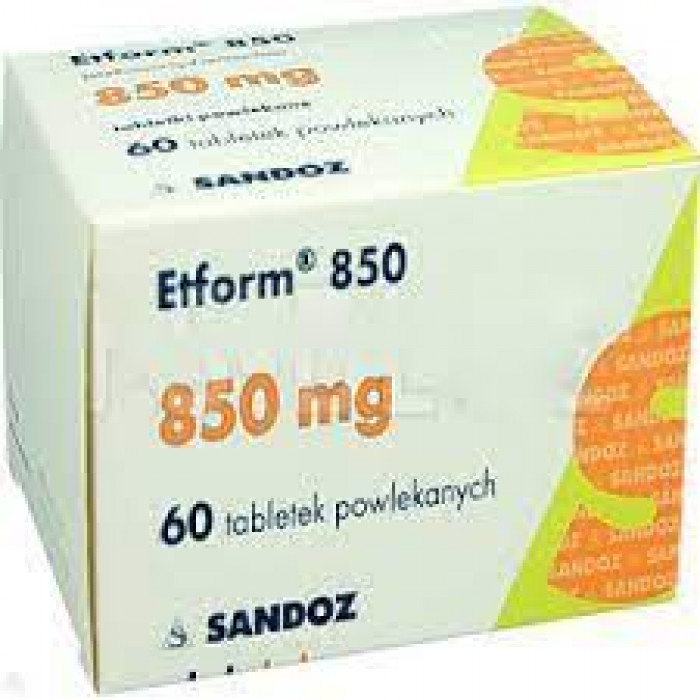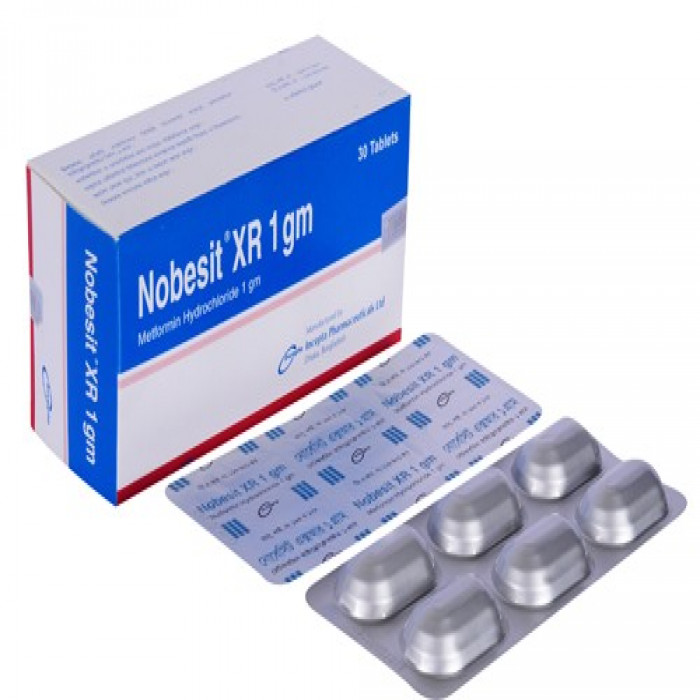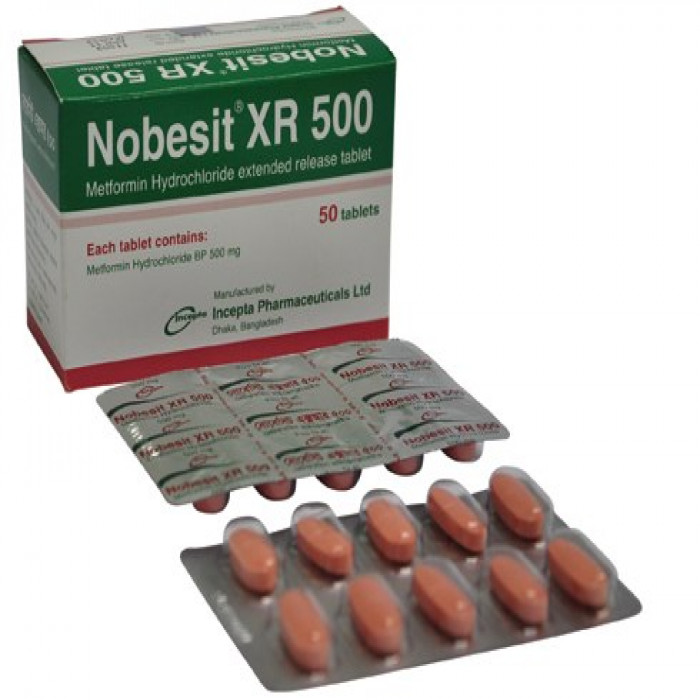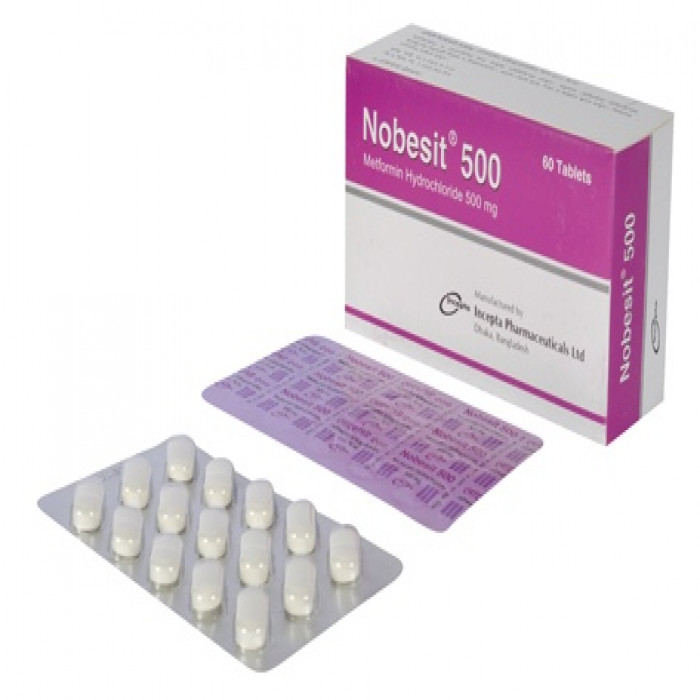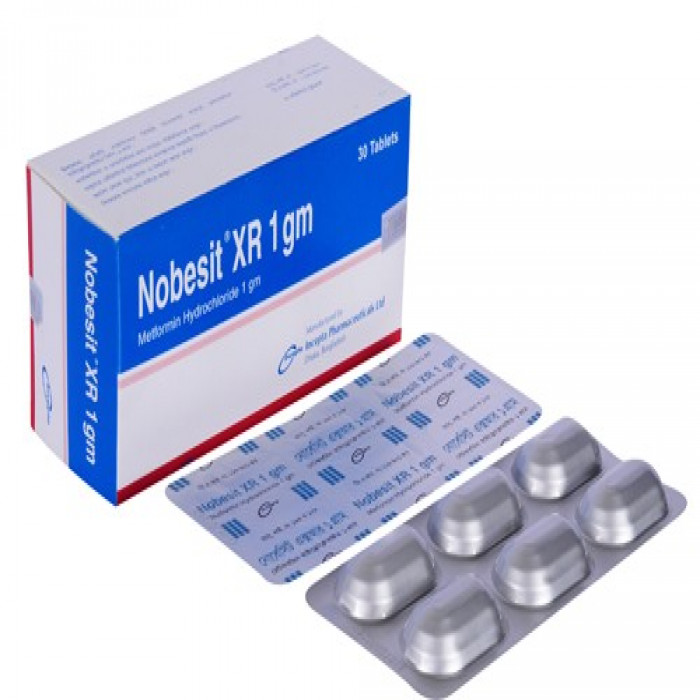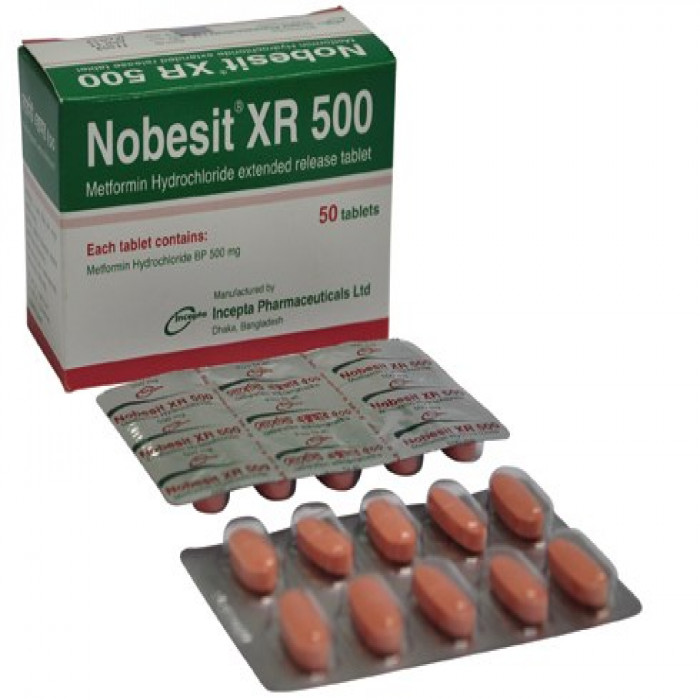
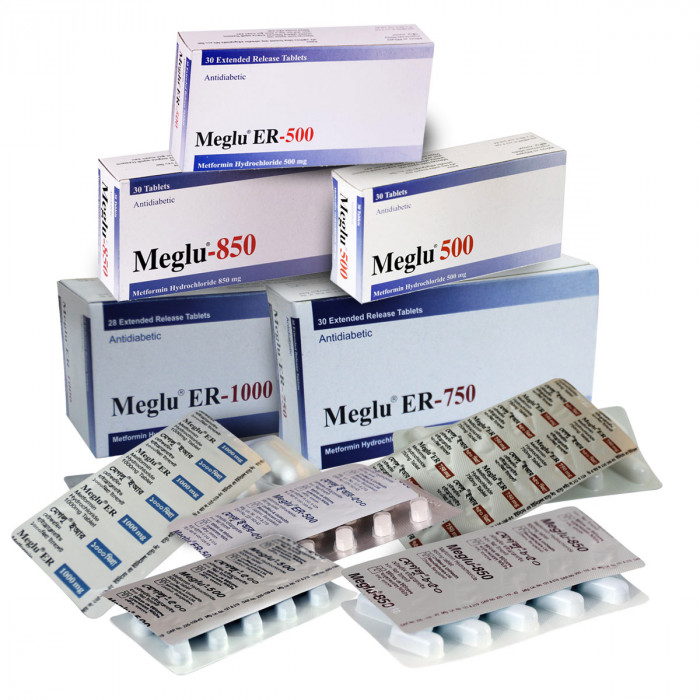
✔ 100% Authentic Product
👁️ Currently Viewing 2194
Meglu ER 1000 mg 4Pcs
Tablet (Extended Release).
Generic Name: Metformin Hydrochloride 1000 mg.
Manufacturer: Unimed Unihealth MFG. Ltd.
Discount
Price: ৳ 34
MRP:
৳
36
5%
Off

100% Genuine Products, Guaranteed

Safe & Secure Payments, Always

Fast, Secure & Efficient Delivery

Proper Packaging
 Cash on Delivery - All over Bangladesh
Cash on Delivery - All over Bangladesh Regular Delivery - 12-24 Hours, Dhaka City* Charge Tk.39-59
Regular Delivery - 12-24 Hours, Dhaka City* Charge Tk.39-59 Regular Delivery - 24-48 Hours, Other Cities* Charge Tk.99-110
Regular Delivery - 24-48 Hours, Other Cities* Charge Tk.99-110
🌙 রমযান অফার 🌙
 ফ্রি ডেলিভারিঃ - ৭৯৯ টাকা+ অর্ডারে, ঢাকা
শহরে
ফ্রি ডেলিভারিঃ - ৭৯৯ টাকা+ অর্ডারে, ঢাকা
শহরে ফ্রি ডেলিভারিঃ - ২৭৯৯ টাকা+ অর্ডারে, ঢাকার
বাহিরে
ফ্রি ডেলিভারিঃ - ২৭৯৯ টাকা+ অর্ডারে, ঢাকার
বাহিরে
📲 মোবাইল অ্যাপ অর্ডারে সাশ্রয় বেশী
-
Google Play Store থেকে ডাউনলোড
-
Apple Store থেকে ডাউনলোড
100% Genuine Products, Guaranteed
Safe & Secure Payments, Always
Fast, Secure & Efficient Delivery
Proper Packaging
 Cash on Delivery - All over Bangladesh
Cash on Delivery - All over Bangladesh Regular Delivery - 12-24 Hours, Dhaka City* Charge Tk.39-59
Regular Delivery - 12-24 Hours, Dhaka City* Charge Tk.39-59 Regular Delivery - 24-48 Hours, Other Cities* Charge Tk.99-110
Regular Delivery - 24-48 Hours, Other Cities* Charge Tk.99-110 ফ্রি ডেলিভারিঃ - ৭৯৯ টাকা+ অর্ডারে, ঢাকা
শহরে
ফ্রি ডেলিভারিঃ - ৭৯৯ টাকা+ অর্ডারে, ঢাকা
শহরে ফ্রি ডেলিভারিঃ - ২৭৯৯ টাকা+ অর্ডারে, ঢাকার
বাহিরে
ফ্রি ডেলিভারিঃ - ২৭৯৯ টাকা+ অর্ডারে, ঢাকার
বাহিরে- Google Play Store থেকে ডাউনলোড
- Apple Store থেকে ডাউনলোড
🌙 রমযান অফার 🌙
📲 মোবাইল অ্যাপ অর্ডারে সাশ্রয় বেশী
✅ Description:
Meglu ER 1000 is a medicine used to treat type 2 diabetes mellitus. It helps control blood sugar levels and thus prevent serious complications of diabetes. It is also used to treat menstruation related disorder known as Polycystic ovary syndrome (PCOS) in women. Meglu ER 1000 is best taken with food to avoid nausea and abdominal pain. You should take it regularly, at the same time each day, to get the most benefit. You should not stop taking this medicine unless your doctor recommends it. Your lifestyle plays a big part in controlling diabetes. Therefore, it is important to stay on the diet and exercise program recommended by your doctor while taking this medicine. The most common side effects of this medicine include nausea, vomiting, taste change, diarrhea, abdominal pain and loss of appetite. Some people may develop hypoglycemia (low blood sugar level) when this medicine is taken along with other antidiabetic medicines, alcohol or upon skipping a meal. Monitor your blood sugar levels regularly while taking it. Before taking this medicine, inform your doctor if you have any kidney, liver or heart problems. Pregnant or breastfeeding women should also consult their doctor before taking it. Your doctor will check your kidney function tests before starting treatment with it. Avoid excessive alcohol intake while taking it as this may increase the risk of developing some side effects.
Uses of Meglu ER 1000
- Type 2 diabetes mellitus
Side effects of Meglu ER 1000
Common
- Nausea
- Vomiting
- Taste change
- Diarrhea
- Abdominal pain
- Loss of appetite
How to use Meglu ER 1000
Take this medicine in the dose and duration as advised by your doctor. Swallow it as a whole. Do not chew, crush or break it. Meglu ER 1000 is to be taken with food.
How Meglu ER 1000 works
Meglu ER 1000 is an anti-diabetic medication (biguanide). It works by lowering glucose production in the liver, delaying the absorption of sugar (glucose) from the intestines and increasing the body's sensitivity to insulin.
What if you forget to take Meglu ER 1000?
If you miss a dose of Meglu ER 1000, take it as soon as possible. However, if it is almost time for your next dose, skip the missed dose and go back to your regular schedule. Do not double the dose.
Quick Tips
- You have been prescribed Meglu ER 1000 to control the blood sugar level and reduce the risk of diabetic complications such as heart attacks.
- Chances of weight gain and low blood sugar are lesser with this medicine as compared to other diabetes medicines.
- Hypoglycemia (low blood sugar level) may occur when taken along with other antidiabetic medicines, alcohol or on delaying/skipping a meal. Carry a sugar source with you for immediate relief.
- Tell your doctor immediately if you experience any deep or rapid breathing, persistent nausea, vomiting, and stomach pain as Meglu ER 1000 may cause a rare but serious condition called lactic acidosis, which is an excess of lactic acid in the blood.
- Prolonged use of Meglu ER 1000 may lead to vitamin B12 deficiency which may lead to anemia, causing fatigue, pale skin, shortness of breath or headache. Notify your doctor if you experience any of these as you may require supplements.
- Your doctor will monitor your blood sugar levels and kidney functions regularly while you are taking this medication.
Brief Description
Indication
Type 2 DM, Polycystic ovarian syndrome,
Administration
Should be taken with food.
Adult Dose
Oral Type 2 diabetes mellitus Adult: Conventional preparation: Initially, 500 mg bid or tid, or 850 mg 1-2 times daily, may increase gradually to 2000 mg daily at intervals of at least 1 wk. Maximum daily dose of 2550 mg per day. Modified-release preparation: Initially, 500 mg once daily, may increase in increments of 500 mg at intervals of at least 1 wk to max 2000 mg once daily at night. If glycaemic control is not sufficient, dose may be divided to give 1000 mg bid. Not to exceed 2000 mg/day Polycystic ovary syndrome Initial: 500 mg/day in the morning for 1 wk, then 500 mg twice daily for 1 wk, then 1.5-1.7 g/day in 2-3 divided doses. Elderly: Initial and maintenance dosing should be conservative. Hepatic impairment: Avoid use; risk of lactic acidosis
Child Dose
Oral Type 2 diabetes mellitus Child: >10 yr Initially, 500 mg 1-2 times daily or 850 mg once daily, may increase gradually to max 2000 mg daily in 2 or 3 divided doses at intervals of at least 1 wk.
Renal Dose
Renal impairment Obtain eGFR before starting metformin eGFR <30 mL/min/1.73 m²: Contraindicated eGFR 30-45 mL/min/1.73 m²: Not recommended to initiate treatment Monitor eGFR at least annually or more often for those at risk for renal impairment (eg, elderly) If eGFR falls below 45mL/min/1.73 m² while taking metformin, risks and benefits of continuing therapy should be evaluated If eGFR falls below 30 mL/min/1.73 m²: while taking metformin, discontinue the drug
Contraindication
Acute or chronic metabolic acidosis with or without coma (including diabetic ketoacidosis). Renal failure, severe renal or hepatic impairment, acute conditions which may affect renal function e.g. dehydration, severe infection or shock. Cardiac failure, CHF, IDDM, severe impairment of thyroid function; acute or chronic alcoholism. Acute or chronic diseases which may cause tissue hypoxia e.g. cardiac or respiratory failure, recent MI or shock. Pregnancy, lactation.
Mode of Action
Metformin is a biguanide w/ antihyperglycaemic effects, lowering both basal and postprandial plasma glucose. It decreases hepatic glucose production by inhibiting gluconeogenesis and glycogenolysis; delays intestinal absorption of glucose; and enhances insulin sensitivity by increasing peripheral glucose uptake and utilisation.
Precaution
Caution when used in patients with CHF especially in those with unstable or acute heart failure. Risk of lactic acid accumulation increases with the degree of renal impairment. May need to discontinue treatment in patients with stress-related states e.g. fever, trauma, infection or surgery. Metformin should be temporarily discontinued for 48 hr in patients undergoing radiologic studies involving intravascular admin of iodinated contrast materials. Elderly. Monitor renal function regularly. Because of possibility of hypoglycemia in combination therapy with a sulphonylurea or insulin, diabetic control should be monitored by blood sugar readings. Lactation: Enters breast milk; not recommended
Side Effect
Anorexia, nausea, vomiting, diarrhoea, wt loss, flatulence, occasional metallic taste; weakness; hypoglycaemia; rash, malabsorption of vit B12. Chest discomfort, flushing, palpitation, chills, headache, lightheadedness, indigestion, abdominal discomfort. Potentially Fatal: Lactic acidosis in presence of renal failure and alcoholism. Patients may experience a metallic taste and there may be weight loss, which in some diabetics could be an advantage.
Interaction
Additive effect w/ sulfonylureas. Thiazide diuretics, corticosteroids, phenothiazines, OC, sympathomimetics, niacin, Ca channel blockers and isoniazid may exacerbate loss of glycaemic control. ACE inhibitors may reduce fasting blood glucose concentrations. May increase serum level w/ cimetidine. Potentially Fatal: Concurrent use w/ iodinated contrast agents may increase the risk of metformin-induced lactic acidosis.
⚠️Disclaimer:
At ePharma, we’re committed to providing accurate and accessible health information. However, all content is intended for informational purposes only and should not replace medical advice from a qualified physician. Please consult your healthcare provider for personalized guidance. We aim to support, not substitute, the doctor-patient relationship.




